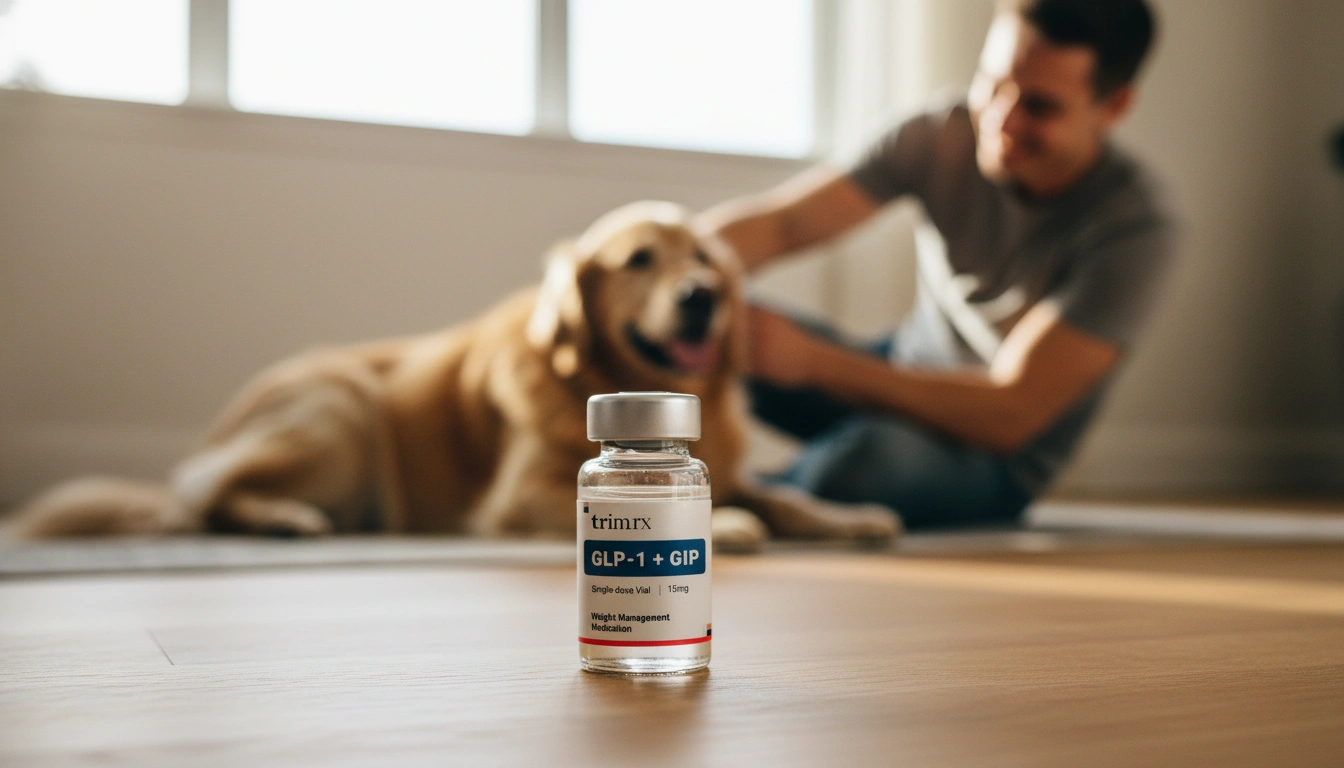Are Generic GLP-1 Medications Safe?

Introduction
Did you know that the global market for GLP-1 medications is projected to reach approximately $133 billion by 2030? As more people seek effective solutions for weight management and diabetes control, glucagon-like peptide-1 (GLP-1) medications have gained significant traction. Yet, this surge in popularity raises important questions about safety, particularly regarding the newly available generic versions. Are generic GLP-1 medications safe? This is a critical inquiry for anyone considering these treatments, especially as they navigate their weight loss or diabetes management journeys.
In this blog post, we will explore the nuances of generic GLP-1 medications, their safety profiles, and what sets them apart from their brand-name counterparts. We will delve into the current landscape of GLP-1 medications, discuss the differences between generics and compounded versions, and share insights on the future of these treatments. By the end of this article, you will have a comprehensive understanding of the safety and efficacy of generic GLP-1 medications and how they fit into the broader context of weight loss and diabetes management.
At TrimRx, we believe in providing our community with the tools and knowledge necessary to make informed health decisions. Our focus on personalized, medically supervised care ensures that each individual’s journey toward weight loss is safe and effective. Together, we will navigate the complexities of GLP-1 medications, empowering you to make choices that align with your health goals.
Understanding GLP-1 Medications
GLP-1 medications, also known as GLP-1 receptor agonists, mimic the action of the naturally occurring hormone glucagon-like peptide-1. This hormone is released in response to food intake and plays a crucial role in several physiological processes, including insulin secretion, appetite regulation, and gastric emptying.
How Do GLP-1 Medications Work?
When you eat, your body breaks down carbohydrates into simple sugars, which enter your bloodstream. GLP-1 enhances insulin secretion from the pancreas, helping to lower blood sugar levels. Additionally, it suppresses glucagon secretion, a hormone that raises blood sugar levels, and slows gastric emptying, which helps you feel full longer. These mechanisms make GLP-1 medications effective for managing type 2 diabetes and promoting weight loss.
Approved GLP-1 Medications
Several GLP-1 medications have received FDA approval for various indications, including:
- Semaglutide (Ozempic, Wegovy, Rybelsus): Approved for both diabetes management and weight loss.
- Liraglutide (Victoza, Saxenda): Used for diabetes management and weight loss in specific populations.
- Tirzepatide (Mounjaro, Zepbound): Approved for diabetes management and weight loss.
- Exenatide (Byetta, Bydureon): Primarily used for diabetes management.
While these medications have proven effective, the emergence of generics has opened up new possibilities for accessibility and affordability.
The Current Landscape of Generic GLP-1 Medications
As the demand for GLP-1 medications continues to rise, the FDA has approved generic versions of certain GLP-1 drugs, including liraglutide and exenatide. Understanding the implications of these generics is essential for patients seeking affordable treatment options.
What Are Generic Medications?
Generic medications are copies of brand-name drugs that are chemically identical in terms of the active ingredients. They are produced after the original patent expires, typically leading to lower costs for consumers. The FDA ensures that generics meet strict standards for quality, safety, and efficacy before they can enter the market.
Current Generic GLP-1 Options
As of now, two GLP-1 medications have generic versions available:
- Exenatide: This generic is equivalent to Byetta and is used to treat adults with type 2 diabetes. It is administered via injection and has been shown to improve glycemic control.
- Liraglutide: This generic mirrors the effects of Victoza and is utilized for both diabetes management and weight loss. It also comes with cardiovascular benefits, making it an attractive option for those at risk.
At TrimRx, we emphasize that while generics can offer significant cost savings, they should still be used under the guidance of a healthcare provider to ensure safety and effectiveness.
Are Generic GLP-1 Medications Safe?
The question of safety surrounding generic GLP-1 medications is paramount, particularly as they become more widely available. Understanding the manufacturing processes, regulatory oversight, and potential side effects can help clarify any concerns.
Regulatory Oversight
The FDA plays a critical role in overseeing the approval and monitoring of both brand-name and generic medications. Generics must demonstrate bioequivalence to their branded counterparts, which means they must release the same amount of active ingredient into the bloodstream at the same rate. This rigorous evaluation process helps ensure that generics are safe and effective for patients.
Common Side Effects
While GLP-1 medications are generally well-tolerated, they can come with side effects. Common side effects for both brand-name and generic GLP-1 medications include:
- Nausea
- Vomiting
- Diarrhea
- Constipation
- Decreased appetite
These side effects are often temporary and can be managed through dietary adjustments and lifestyle changes. It’s essential to communicate with your healthcare provider if you experience any adverse effects, as they can provide guidance on how to mitigate them.
Serious Side Effects
In rare cases, GLP-1 medications have been associated with more severe side effects, such as pancreatitis and kidney issues. Patients with a history of pancreatitis should exercise caution when considering GLP-1 treatments. Always consult your healthcare provider before starting any new medication to ensure it aligns with your medical history and current health status.
Compounded GLP-1 Medications vs. Generics
As the popularity of GLP-1 medications has surged, compounded versions have also entered the market. However, it’s crucial to understand the differences between compounded medications and FDA-approved generics.
What Are Compounded Medications?
Compounded medications are custom-made by pharmacists to meet the specific needs of individual patients. While they can be beneficial in certain situations, compounded GLP-1 medications do not undergo the same rigorous FDA approval process as generics. This lack of oversight raises concerns regarding safety, efficacy, and consistency in dosages.
Safety Concerns with Compounded GLP-1s
Compounded GLP-1 medications may pose several risks, including:
- Inconsistent Dosages: Unlike FDA-approved generics, compounded medications may not provide consistent active ingredient concentrations, leading to variations in effectiveness.
- Quality Control Issues: Compounding pharmacies may not adhere to the same stringent quality standards as manufacturers of generic medications.
- Potential Contaminants: Compounded medications have a higher risk of contamination due to the less controlled environment in which they are produced.
For these reasons, we recommend that patients prioritize FDA-approved generics over compounded versions when considering GLP-1 medications.
The Future of GLP-1 Generics
As the landscape of GLP-1 medications evolves, the future looks promising. With more generics expected to enter the market, patients may benefit from increased access and affordability. However, several factors will influence the trajectory of these treatments.
Anticipating New Developments
While liraglutide and exenatide are currently the only generic GLP-1 medications available, there are ongoing discussions and research regarding the potential for generics of other popular GLP-1 drugs, such as semaglutide. However, the timeline for these developments remains uncertain. Experts predict that it may take several years before generics for more recent GLP-1 medications become available.
Emphasizing Patient-Centric Care
At TrimRx, our commitment to patient-centric care means we prioritize your safety and well-being as you navigate your weight loss journey. Our approach combines advanced medical science with modern technology to provide personalized, medically supervised care tailored to your unique needs.
Conclusion
As we have explored, generic GLP-1 medications present a viable option for individuals seeking effective diabetes management and weight loss solutions. While they are generally considered safe and effective, it is crucial to consult with a healthcare provider to ensure that these medications align with your health goals and medical history.
At TrimRx, we are dedicated to empowering you on your journey toward a healthier lifestyle. Our personalized, medically supervised programs are designed to support you every step of the way. If you are considering GLP-1 medications, we encourage you to take our free assessment quiz to determine your eligibility for our prescription weight loss solutions. Together, we can help you achieve sustainable weight loss through science, empathy, and a transparent approach.
FAQ
What is a GLP-1 medication?
GLP-1 medications are a class of drugs that mimic the hormone glucagon-like peptide-1, which helps regulate blood sugar levels and appetite.
Are generic GLP-1 medications safe?
Yes, generic GLP-1 medications are considered safe as they must meet stringent FDA standards for quality and efficacy.
What are the common side effects of GLP-1 medications?
Common side effects include nausea, vomiting, diarrhea, and decreased appetite.
How do generics differ from compounded medications?
Generics are FDA-approved and must demonstrate bioequivalence to their brand-name counterparts, while compounded medications are custom-made and lack the same level of regulatory oversight.
How can I determine if GLP-1 medications are right for me?
Consulting with a healthcare provider is essential to assess your medical history and determine the most suitable treatment options for your individual needs.
For personalized support on your weight loss journey, explore our offerings at TrimRx and take our free assessment quiz today!

Transforming Lives, One Step at a Time
Keep reading
China’s Supreme Court Upholds Semaglutide Patent for Novo Nordisk
China’s Supreme People’s Court upholds Novo Nordisk’s semaglutide compound patent, supporting IP protection.
Over 600,000 Californians Risk Losing Access to GLP-1 Weight-Loss Drugs
California’s Medi-Cal will stop covering GLP-1 weight-loss drugs for weight-loss-only prescriptions, effective Jan. 1, 2026.
Weight-Loss Pill Approval Likely to Prompt Overhaul of Packaged Food and Fast-Food Products
FDA approval of GLP-1 weight-loss pills may prompt food makers and restaurants to shift to high-protein, smaller-portion products.



